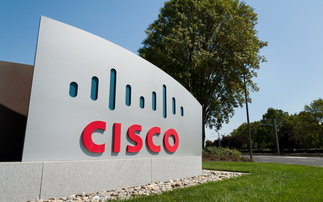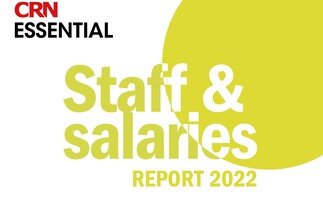
Before the word "partner" became ubiquitous, there were value-added resellers - or VARs. VAR was the acronym in a pre-SaaS world where hardware and software were sold and installed on-prem at companies. VARs were the on-the-ground companies that sold the solutions and ensured that technology solutions worked. Simply put, VARs add the value.
That was a generation ago. Fast forward to today, and the VARs in every type of SaaS solution, whether it is infrastructure, software, cloud, or business, has trifurcated into three types:
- Monsters (global partners)
- Mid-sized Market Winners (usually in one or two markets)
- Lifestyle businesses (closely held private companies)
While every massive tech company - Microsoft, Salesforce, Apple, ServiceNow - and others, have partner programmes, my perspective in this article is focused on Microsoft as I have been a key partner for three decades over four businesses, most recently a Microsoft Dynamics partner.
In that context, here is a deeper look at these partner types. The "Monsters" are a handful of global consulting firms whose clients are some of the largest organisations in the world. The Monster firms have deep, multi-faceted relationships with their clients who seek ongoing consulting to optimise IT solutions.
Monster firms can scale to meet client demands, yet they are not nimble. The lack of nimbleness is due to their layers of bureaucracy and matrix management models. This leads to a natural avoidance of accountability at the exec level. Because these organisations are layered, they tend to have inexperienced consultants on the front line to help clients. These consultants are more order takers than advisors to businesses. As a result, they "sell" the client what is requested and tend to add very few clients in any year. They don't have a classic sales culture.
The bottom line is that there is mixed "value added" to Microsoft by a Monster partner other than scale and access to large enterprise (which may be enough). Plus, few Monsters outpace market growth as most mirror the market—further, these often publicly traded companies are pressuring the vendors and clients for their own profits over the client solutions.
The hundreds of thousands of "Lifestyle" businesses are at the other end of the spectrum with no scale, limited growth, some advanced skills, and limited achievable ambition. They are small, closely held businesses with a narrow cadre of clients. These Microsoft partners have profound, long-term relationships with clients. In many cases, they act as an extension of the client's staff. While they add value to the client, they do not add value to their own firm. It is why I categorise them as "Lifestyle" businesses. They offer the owner an excellent lifestyle, yet these owners rarely reinvest profits in their firms. Their growth tends to be stagnant, and they are not structured to scale. Many clients absolutely stay with them for years - and some outgrow them. The Lifestyle firms tend not grow too much and rarely expand Microsoft's footprint into a specific industry, like healthcare or media and entertainment unless by mistake.
Between the Monsters and Lifestyle businesses is the sweet spot for Microsoft in its partner programme. These mid-sized "Market Winners" are a few strong players with advanced skills they can apply to clients. They build scale, drive well-above market growth in revenue and by industry or capability, and are agile, flexible, culturally great and entrepreneurial.
This middle group of Market Winners brings new tech to the market first, drives most of the development of net new clients, and is loved by the vendors because they are not pressuring the vendors for their own profits as the Monsters do. They have the market power to deliver, yet the public markets do not control them.
Yet Monsters are swallowing up the mid-sized Market Winners at a torrid pace, which in the long run is not always healthy for Microsoft's ecosystem unless those Monsters adapt to be agile and entrepreneurial like the businesses they buy. Unfortunately, there is limited evidence of this. What is needed are more mid-sized market winners, and the most efficient way to get there is through M&A - assembling the myriad of Lifestyle partners (who have the deeply-rooted relationships with clients) together to make more Market Winners like QUANTIQ, Tribridge, eBecs, Content & Code, etc. In most cases, the mid-sized Market Winners don't reach that status organically (without being acquisitive), but M&A is tricky. The vendors need to help.
Microsoft, like other vendors, have spent years building partner recruit programmes and while there are hundreds of thousands of partners, too many are not the right ones who can drive change, growth, awareness and exceptional service. The sweet spot is the middle right now; there are hundreds of companies in the middle or sweet spot which could scale even faster.
Microsoft and other vendors need to adopt and promote a platform to help these lifestyle companies buy or sell in order to create more Market Winners. Microsoft could assist this process by understanding what really drives success and helping build these winners as opposed to just recruiting more partners.
The nearest thing I have seen to this belongs to IT ExchangeNet, (ITX) marketplace in the US. I love the model and strongly believe that the vendors need to provide the ITX marketplace in each country with a network of experienced scale-up execs to help those businesses flourish.
Stuart Fenton is the Founder and CEO of Woolf Partners, a group of leaders experienced in scale-ups, turnarounds, offshoring, financial services, and IT services, delivering advice and investment to organizations looking to grow equity value radically. Most recently Stuart founded QUANTIQ in 2014 as a Microsoft Dynamics 365 partner, acquired by Avanade in November 2021. Previously he was the President of EMEA/Asia for Insight Enterprises and Vice President for Micro Warehouse Europe/Canada (now part of CDW).













